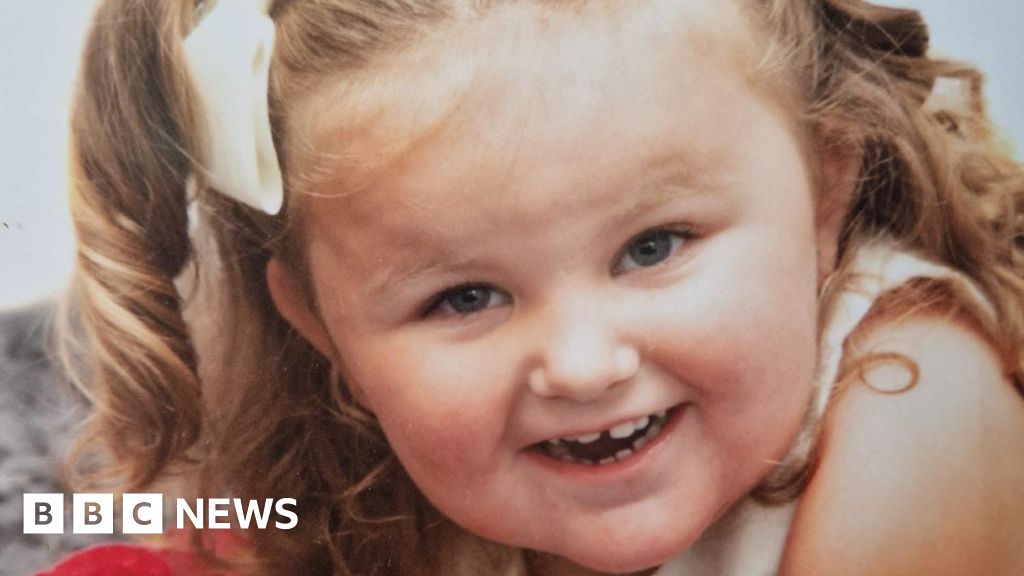


Image source, Family handout
There were “missed opportunities” to treat a four-year-old girl who visited A&E and a GP in the 48 hours before her death, an inquest jury has concluded.
Makenna-Rose Thackray died on 20 December 2022 after stopping breathing and going into cardiac arrest.
She was taken to Wakefield’s Pinderfields Hospital by ambulance two days earlier but went home after her family endured a fruitless six-hour wait for treatment. They visited a GP the following day and were sent home without antibiotics.
A lawyer for Makenna-Rose’s family said the evidence showed the girl’s death was “entirely preventable”.
Makenna-Rose was diagnosed with scarlet fever, caused by the bacterial infection Strep A, on 9 December 2022.
There was a Strep A outbreak across the UK in late 2022, with pharmacists across the country reporting a widespread shortage of penicillin.
On 18 December the youngster had been taken to children’s A&E but the inquest heard the two nurses on shift that night dealt with almost 80 children, instead of the 30 to 40 which could have been safely treated.
Earlier in proceedings, one of the nurses on shift that night, Helen Parker, described the shift as “one of the worst” and when asked if they were under-staffed, replied: “Absolutely, yes.”
Makenna-Rose’s mother, Danielle Ledger, took her daughter home, saying she had not been encouraged to stay.
The nurse said she had encouraged Ms Ledger to remain there.
GP Dr Nand Kishar Nemana, who saw her the following day, said he was not made aware Makenna-Rose had vomited blood or been taken to hospital by ambulance the previous night.
He diagnosed the family, from Rothwell, with flu.
Makenna-Rose died the following day.
Image source, Family handout
The medical cause of death was read in the court as natural causes, namely invasive Strep A and 1B influenza A (flu).
Before being sent out to deliberate, coroner Oliver Longstaff set out a list of facts to help the Wakefield inquest jury come to a decision.
The jury found there were “missed opportunities” in not having Makenna-Rose observed during her six hour wait in Pinderfields.
It found that “the hospital was significantly busier than normal” which led to Makenna-Rose not being seen.
The jury also found Dr Nemana’s “management would have been different” if he had known about Makenna-Rose’s hospital trip and her previously vomiting blood.
The inquest was closed following the jury’s findings.
Speaking afterwards, lawyer Gareth Naylor said Makenna-Rose’s family had shown “a great deal of courage and dignity” during the inquest into her death.
“The evidence shown during the course of the inquest shows that her death was entirely preventable,” he added.
In a statement, Makenna-Rose’s parents said: “We came to this inquest hoping that those responsible for our daughter’s medical care would accept some accountability for their failures and so they could learn from their failures to try prevent something like this happening again.”
They went on: “It is heartbreaking to know that even at this stage that if the doctor had referred Makenna-Rose back to hospital it is likely that she would have survived.
“Those who met Makenna-Rose never forgot her.
“She was a larger than life character, and a real daddy’s girl.
“She loved dancing and adored her animals, her pet rabbit and puppy, Floss, who she would take to school in her doll’s pram.
“We all miss her so much.”
If you have been affected by the issues raised in this story you can find help and support at BBC Action Line.